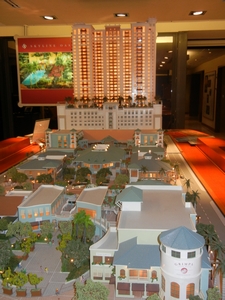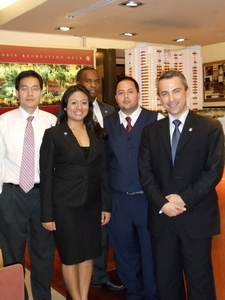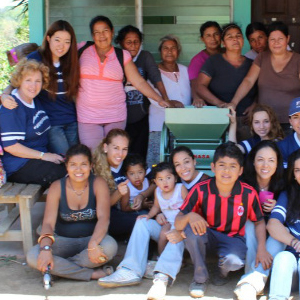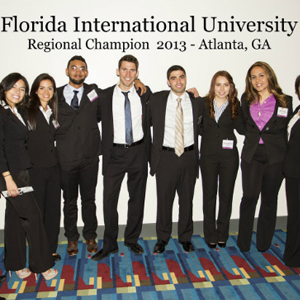In 1870, Mary Brickell along with her husband William, opened a trading post on the banks of the South Miami River, where goods were traded with the Seminole Indians.
Today, what’s known as Mary Brickell Village houses the nation’s second largest international banking center and is now home to Sky Palace, a soon-to-be-completed 369-unit luxury high-rise condominium development.
Thanks to a recent College of Business Administration’s Real Estate Student Association (RESA) event, a group of students, alumni and professors toured Sky Palace, led by Stylianos Vayanos, vice president, public relations and international marketing, Skyline Equities.
According to Wendy Hernandez, chapter president, the development’s location and Mediterranean style makes it unique compared to other properties in the area.

“Attendees gained insight on the financing, valuation and development stages of this mixed-use commercial property,” she said.
Areya Keshvari, student and RESA member, is glad he attended the Sky Palace event.
“The tour provided a rare glimpse into the strategic planning required to deliver such a development amid recent economic challenges,” Keshvari said. “The development team walked us through the project from concept through execution.”
Does this signal a return to the luxury real estate market?
Hernandez notes that Miami luxury condominium development is currently on hold because of the oversupply of product but there is an upside.

“The large number of vacant condos, however, provides opportunities for great deals with more than reasonable prices in such a prime location,” she said. “The current market prices make downtown living more affordable to those who previously couldn’t afford it, in particular young professionals. This is advantageous for Florida International University (FIU) students and recent grads!”
Keshvari backs up that observation by citing an independent Residential Closings & Occupancy study commissioned by the Miami Downtime Development Authority that reveals 85% of the 23,628 condo and apartment units constructed since 2003 are now occupied, reflecting a 31% increase since June 2009.
He observes that “this newly found urban draw for both renters and purchasers complements the number of international buyers that have been helping fuel the recovery.”




